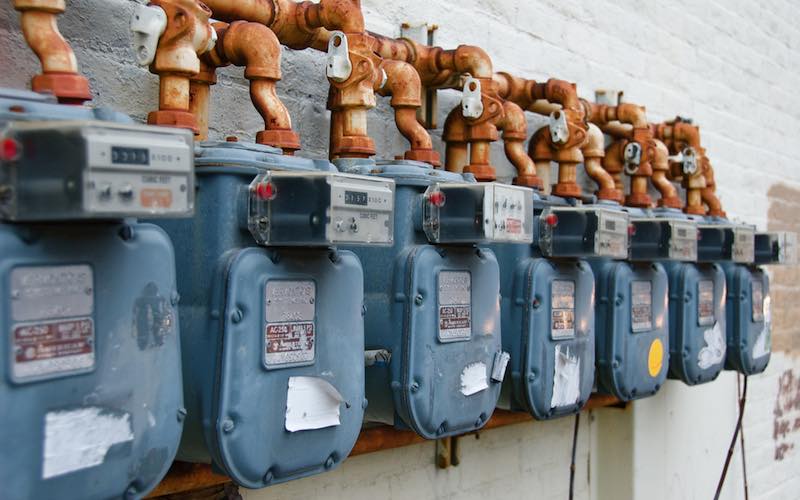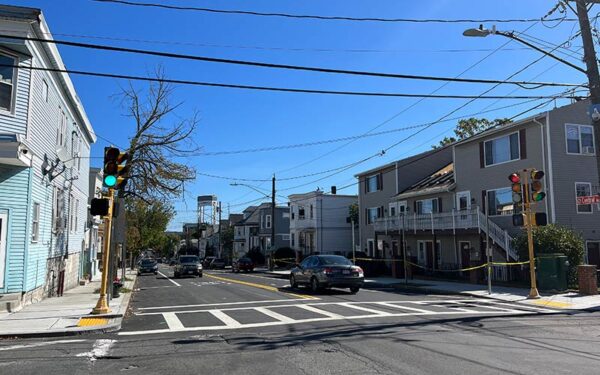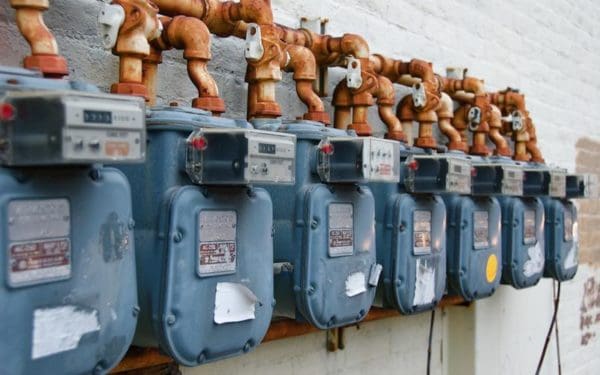
Gas meters. Photo: Justin Henry via CC2.0
Just as families prepared for a brutal winter night in late January, National Grid cut gas service to more than 7,000 customers, leaving homes and businesses in the cold. They called it a precaution and couldn’t say how long homes would be left to contend with the frigid temperatures. Governor Raimondo quickly called a State of Emergency for Newport County. Ultimately, the outage lasted a full week.
From the outset, it appeared clear that this outage was the fault of one of the gas companies – and not caused by low temperatures and high demand for gas as Algonquin Gas Transmission claimed. A report released last week confirms that several factors contributed to the outage and places the blame squarely on the shoulders of both National Grid and Algonquin Gas. It also says – and we agree – that they and they alone should bear the costs of the outage. National Grid should not be able to charge its customers for the $25 million price tag for an outage, which costs businesses money and stressed families at the coldest time of the year.
With another New England winter fast approaching, it’s also worth digging into some of the other recommendations from the report and asking if they go far enough. Rhode Island could avoid these types of outages entirely by switching from fossil fuels like gas to clean alternatives powered by solar and wind. This would not only help us avoid unnecessary outages, but also allow us to reach our climate goals.
What Does the Report Suggest for Aquidneck Island?
The report, released by the Rhode Island Division of Public Utilities and Carriers, rightfully places the fault for January’s emergency on the utilities and pipeline company, and it offers some proposed changes to ensure this doesn’t happen again. One bright spot is the recommendation to implement demand response, which would compensate customers for using less gas during peak times. This would reduce the amount of gas being used and help transition us to a gas-free future by encouraging people to use alternative sources of energy.
Additionally, the report correctly suggests that better planning and forecasting of gas usage would ensure the heat and power stay on, no matter the weather outside.
Unfortunately, other suggested solutions are troubling, as they simply rehash the same tired rhetoric we’ve been hearing from the gas industry for years: storing more liquid natural gas on Aquidneck Island and expanding pipelines. We know that further investments in gas and other fossil fuels are short-sighted and unhealthy for our communities. What’s more, bringing more dirty fracked gas into Rhode Island is totally inconsistent with the state’s goal of reducing its climate-damaging emissions.
The Report Doesn’t Go Far Enough
Communities throughout Rhode Island need to start looking at non-gas alternatives that will not pollute our air and harm our environment, options like heat pumps, induction stoves, and electric water heaters. Heat pumps and other non-fossil fuel systems are more reliable than gas, and they are much safer for families and businesses. These alternatives not only reduce demand for fossil fuels, they also further Rhode Island’s climate goals.
It’s time we stop accepting the gas industry’s tired talking point that throwing more money towards expanding an unsafe, dirty system will lead to a safer and more reliable system. Only by ditching gas will we be protected from outages like this in the future.
Moving Rhode Island Away from Gas
Rhode Island has goals of reducing climate-damaging emissions to respond to the climate crisis, but we can’t meet them by expanding fracked gas. We must drastically reduce our emissions over the coming years to avoid the worst impacts of climate change.
Last week’s report is correct in placing the blame on the utility and pipeline company, and it offers a few first steps that can be taken to ensure that an outage like this does not happen again. But the time for mere tweaks and minor changes has passed. Only by thinking boldly and committing to ditching fossil fuels will we truly protect our communities and our environment before it’s too late.


